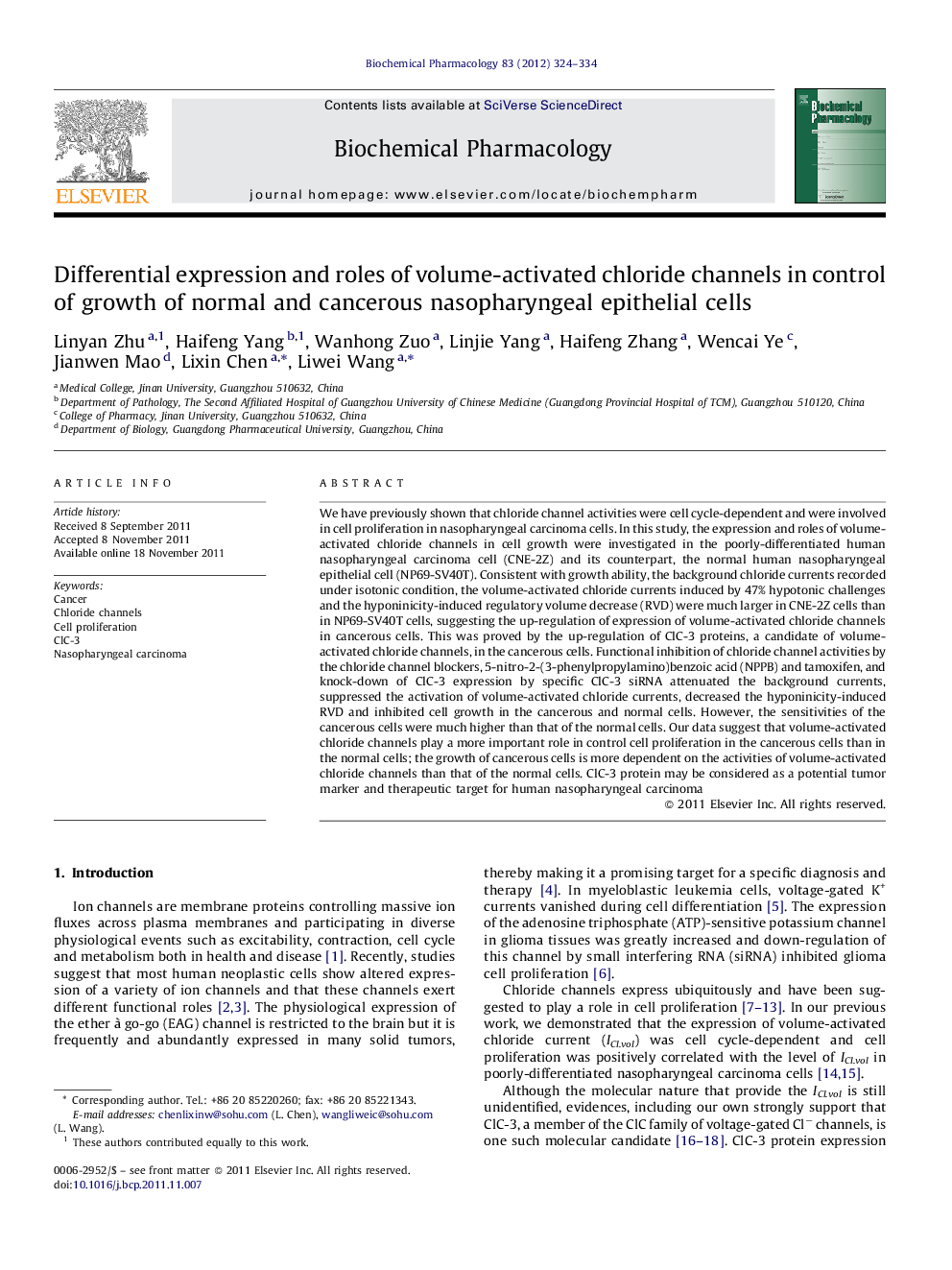| کد مقاله | کد نشریه | سال انتشار | مقاله انگلیسی | نسخه تمام متن |
|---|---|---|---|---|
| 2512925 | 1118384 | 2012 | 11 صفحه PDF | دانلود رایگان |

We have previously shown that chloride channel activities were cell cycle-dependent and were involved in cell proliferation in nasopharyngeal carcinoma cells. In this study, the expression and roles of volume-activated chloride channels in cell growth were investigated in the poorly-differentiated human nasopharyngeal carcinoma cell (CNE-2Z) and its counterpart, the normal human nasopharyngeal epithelial cell (NP69-SV40T). Consistent with growth ability, the background chloride currents recorded under isotonic condition, the volume-activated chloride currents induced by 47% hypotonic challenges and the hyponinicity-induced regulatory volume decrease (RVD) were much larger in CNE-2Z cells than in NP69-SV40T cells, suggesting the up-regulation of expression of volume-activated chloride channels in cancerous cells. This was proved by the up-regulation of ClC-3 proteins, a candidate of volume-activated chloride channels, in the cancerous cells. Functional inhibition of chloride channel activities by the chloride channel blockers, 5-nitro-2-(3-phenylpropylamino)benzoic acid (NPPB) and tamoxifen, and knock-down of ClC-3 expression by specific ClC-3 siRNA attenuated the background currents, suppressed the activation of volume-activated chloride currents, decreased the hyponinicity-induced RVD and inhibited cell growth in the cancerous and normal cells. However, the sensitivities of the cancerous cells were much higher than that of the normal cells. Our data suggest that volume-activated chloride channels play a more important role in control cell proliferation in the cancerous cells than in the normal cells; the growth of cancerous cells is more dependent on the activities of volume-activated chloride channels than that of the normal cells. ClC-3 protein may be considered as a potential tumor marker and therapeutic target for human nasopharyngeal carcinoma
Figure optionsDownload as PowerPoint slide
Journal: Biochemical Pharmacology - Volume 83, Issue 3, 1 February 2012, Pages 324–334